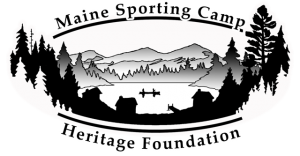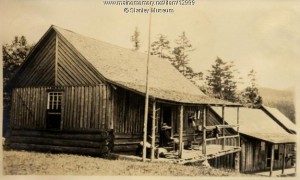The Foundation’s staff and volunteers actively meet with individuals and organizations to build coalitions and engage partners who can contribute vital expertise, resources and public support for our mission. Fortunately, Maine has a very active tourism and conservation community consisting of many private and public organizations. Some of these are highlighted below.
Networking with Tourism and Recreational Organizations
The Foundation staff meets with a number of tourism and recreation organizations that have great input and influence on our programs. The Foundation staff participates in a number of ongoing forums and discussion groups, such as the “Recreation/Conservation Forum”, where these organizations share ideas and differing viewpoints. These groups include:
- Maine Sporting Camp Association
- Mountain Counties Heritage, Inc.
- Maine Woods Consortium, Tourism Training Initiative
- Maine Rural Partners
- Maine Tourism Commission
- Maine Tourism Association
- Grand Lake Stream Guides Association
- Sportsman’s Alliance of Maine
- Sportsman/Forest Landowner Alliance
- North Maine Woods
- Maine Professional Guides Association
- Maine Wilderness Guides Organization
- Appalachian Mountain Club
Networking with Conservation Organizations
Large scale conservation projects involve many technical specialties, as well as major fundraising efforts. Much of the Foundation’s conservation easement programs is actually carried out by our conservation partners, including:
- Coastal Enterprises, Inc, Wiscasset, who is very involved with a Federal Tax Credit program (Major Markets Tax Credits) that aids in financing land conservation transactions.
- Northern Border Regional Commission, whose Congressional directive is to improve the region’s economy, including through major conservation programs.
- Maine Nature Tourism Initiative, a committee chaired by the Governor’s staff to develop nature-based tourism opportunities, including landscape scale land conservation.
- Maine Bureau of Public Lands, which owns land in fee and holds conservation easements.
- Lands for Maine’s Future, whose Board oversees funding of public bond proceeds for conserving land through fee purchase and conservation easements.
- Maine Council on Quality of Place – Regional Landscape Conservation, is a state program to guide efforts to conserve large landscapes as well as the culture and heritage of Maine communities.
- Maine Land Use Regulatory Commission, which sets the land management and conservation policies for over 10 million acres where most sporting camps are located.
- Maine Department of Inland Fish & Wildlife, who has fish and wildlife biologists who study these issues and implement conservation policies relating to these resources.
- Maine Natural Areas Program, is a state program that seeks to identify vital plant and wildlife habitats.
- The Forest Society of Maine, which holds conservation easements on nearly one million acres of forestland, some of which surrounds sporting camps.
- The Nature Conservancy, which funds land acquisitions and easements, and has much expertise in wildlife habitat conservation.
- Maine Audubon, is Maine’s largest organization dealing specifically in wildlife conservation.
- Whitetails Unlimited, a wildlife conservation group dealing with whitetail deer habitat protection.
- Ruffed Grouse Society, a wildlife conservation group dealing with habitat protection and restoration for ruffed grouse, spruce grouse (protected species in Maine) and migratory woodcock.
Networking with other Land Trust Organizations
Maine’s land trust community is very active and offers many collaboration and networking opportunities, from those of very local interest to those who are more statewide. Several are well established in helping the regions occupied by sporting camps, and the Foundation’s staff meets with them frequently. Some notable land trust partners are:
- Maine Coast Heritage Trust, one of Maine’s largest land trusts, and sponsor of the annual land conservation conference which presents seminars and networking opportunities.
- Rangeley Lakes Heritage Land Trust, created where many of Maine’s sporting camps are concentrated, and where fishing guides first became licensed by the state in 1897.
- Downeast Lakes Land Trust, is successfully acquiring land in fee and by easement that surrounds a community almost wholly dependent on sporting camps, fishing guides and forestry. The trust is conserving the area’s lands and wildlife to assure their economy and heritage remain strong.
- Woodie Wheaton Land Trust, not far from the Downeast Lakes Land Trust, this trust was also created to assure the continuation of sporting camps and fishing guides.
- The Forest Society of Maine, whose mission is to conserve Maine’s forestlands in a manner that sustains their ecological, economic, cultural, and recreational values. To date, FSM has helped conserve and steward more than 1 million acres of Maine’s forestlands, including the historic conservation easement on 363,000 acres near Greenville.


